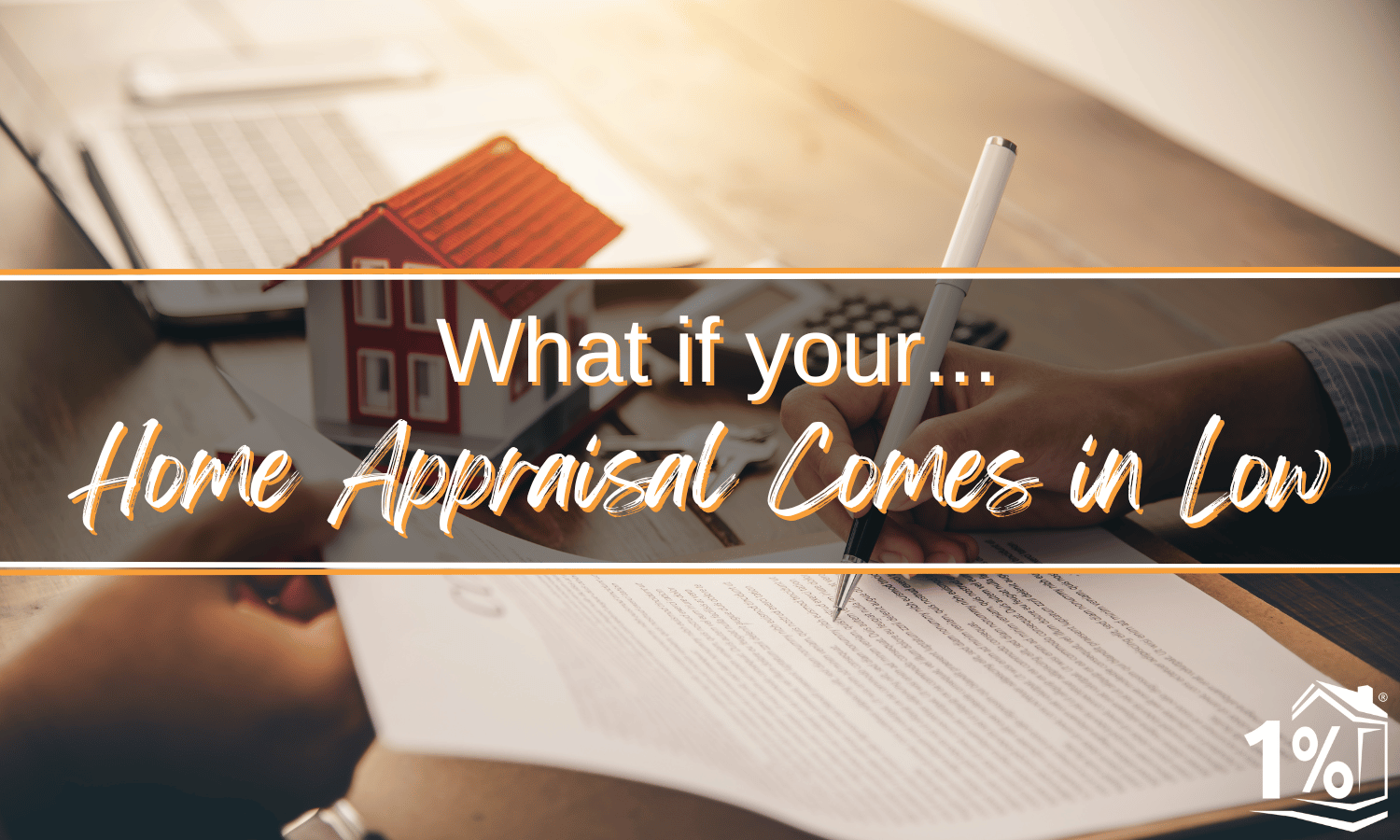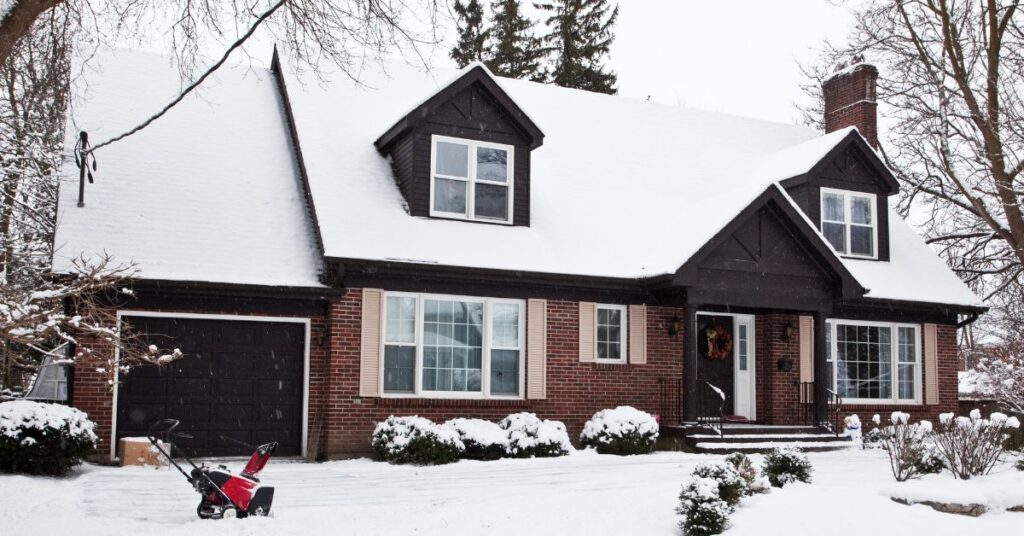Selling your home can be both thrilling and anxiety-inducing. Naturally, you want to get the highest possible price for your property. But what happens when the appraisal value falls short of your expectations?
This is a common worry that can cause complications for both the buyer and the seller. It can potentially lead to closing delays or even a failed sale. Nevertheless, a low appraisal does not have to mean the end of the deal. It occurs more frequently than you may realize, which is why it’s crucial to be ready when selling your home.
With that in mind, we’ll cover the basics of home appraisals and the factors that can influence your property’s value. We’ll also explore some of the common reasons for low appraisals and provide tips on how to avoid them. By the end, you’ll have a better grasp of the appraisal process. And, hopefully, feel more confident in successfully navigating your home sale.

What is a home appraisal?
When selling your home, obtaining an appraisal is a crucial step. This evaluation, conducted by a licensed appraiser, determines your property’s fair market value by examining a variety of factors.
During the appraisal, the appraiser will conduct a thorough inspection of both the interior and exterior of your home. They’ll also look at market reports for the surrounding neighborhood and area. They’ll use this information to compare your property to recently sold homes and consider current real estate trends.
Numerous elements can affect your home’s appraisal value, including its size, condition, layout, and any upgrades or improvements you have made. Other factors, such as location, neighborhood, and proximity to amenities, can also play a role.
The appraiser’s report is critical in the home selling process. This is because lenders use it to determine the amount they are willing to lend to potential buyers. A low appraisal value can make it difficult for buyers to secure financing, potentially stalling your home sale.
To ensure an accurate appraisal, it’s vital to work with a reputable appraiser who has experience valuing homes in your area. This will help you obtain the best possible price for your home and facilitate a successful sale.
Factors that can lead to a low appraisal
While homeowners hope for a high appraisal value, there are several reasons why a home appraisal may fall short. Being aware of these reasons can help you prepare for the appraisal and take measures to minimize any potential issues.
One of the most common reasons for a low appraisal is the condition of the property. If your home is in poor condition or requires significant repairs, the appraiser may assign a lower value. Similarly, outdated features and design elements that detract from your home’s appeal to buyers can contribute to a lower appraisal value.
Market conditions and location can also significantly impact the appraisal value. If your home is in a high-inventory, low-demand area, the appraiser may adjust its value accordingly. Similarly, high crime rates in the area can have a negative impact on the appraisal value.
Inaccurate property information or the use of incorrect comparable homes in the valuation process can also lead to a low appraisal. It’s crucial to carefully review the appraisal report and address any inaccuracies or discrepancies with the appraiser. That’s why working with an experienced appraiser is so important.

What can be done about a low appraisal?
Receiving a low home appraisal can be frustrating, but there are steps you can take to address the situation.
Firstly, review the appraisal report for any errors or omissions. If there is an issue, you can request a reconsideration or appeal the appraisal. Keep in mind that these processes can be time-consuming and may not always be successful.
If you cannot dispute the appraisal, working with your real estate agent to negotiate with the buyer is an option. The buyer may be willing to pay the appraisal gap out of pocket. Additionally, in some instances, the lender may approve a higher loan amount.
Alternatively, you can consider making improvements to your home to increase its value. This could involve repairing or upgrading the property, such as replacing outdated features or addressing maintenance issues. However, these improvements can be costly and may not result in a significant increase in the value.
Lastly, you may need to consider lowering your asking price or walking away from the sale. Although not ideal, selling your home at a fair price is ultimately in your best interest. A trusted real estate agent can help guide you through these options. And they’ll assist you in making the best decision for your situation.
Keep this in mind…
Don’t forget that the buyer was interested in your home before the appraisal. This means that they’re likely still interested in buying it. Minor issues like outdated design or lack of amenities that weren’t a concern before shouldn’t be now.
Often, buyers are willing to negotiate or pay the offered price to reach a mutually beneficial agreement. Keep in mind that a low appraisal doesn’t have to derail the sale. Work with a trustworthy agent, stay level-headed, and weigh all your options before making any big decisions.
Tips to prevent a low appraisal
The fact is, some factors affecting your home appraisal are beyond your control. But there are steps you can take to increase your chances of receiving a fair and accurate valuation. Consider these tips to avoid a low appraisal:
- Research the real estate market in your area before listing your home to set a realistic asking price.
- Make necessary repairs and upgrades to improve the condition and value of your home.
- Declutter, clean, and stage your home to make a good impression on the appraiser.
- Keep records of any repairs or upgrades you’ve made to your home, including receipts and invoices.
- Be present to provide additional information about your home.
- Provide the appraiser with recent sales of comparable homes in your area to ensure they use accurate data in their valuation.
- Work with your real estate agent to avoid overpricing your home and set a realistic asking price.
By following these tips, you can increase the likelihood of a fair and accurate home appraisal. Working with an experienced agent and preparing your home for the appraisal can help improve the chances of a successful sale.
In conclusion
As a homeowner, receiving a low home appraisal can be frustrating and stressful. However, it’s important to remember that there are steps you can take to address the situation. At 1 Percent Lists , our experienced agents are here to support you through every step.
Whether you’re selling your home or looking to buy a property in Metairie or surrounding areas, we’ll help you navigate the process.
Contact us today to learn more about our services and how we can help you achieve your real estate goals.





